Turkey elections: Erdogan says no party can rule alone
- Published
Turkey's president is trying to encourage a coalition but will struggle, reports Mark Lowen from Istanbul
Turkey's President Recep Tayyip Erdogan has said the inconclusive election result means no party can govern alone.
His party, AKP, is meeting to try to form a government after losing its majority in a general election for the first time in 13 years.
It secured 41%, a sharp drop from 2011, and must form a coalition or face entering a minority government.
Mr Erdogan has called on all parties to "preserve the atmosphere of stability" in Turkey.
"I believe the results, which do not give the opportunity to any party to form a single-party government, will be assessed healthily and realistically by every party," Mr Erdogan said.
He said the high turnout - 86% - indicated Turkey's "determination for democracy".
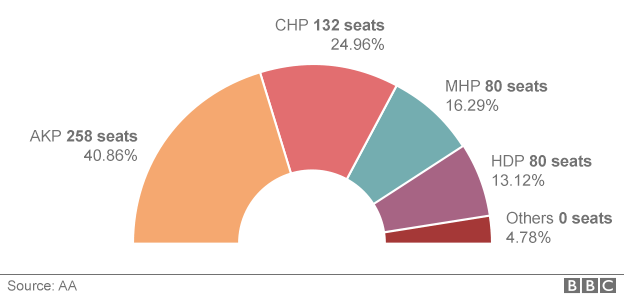
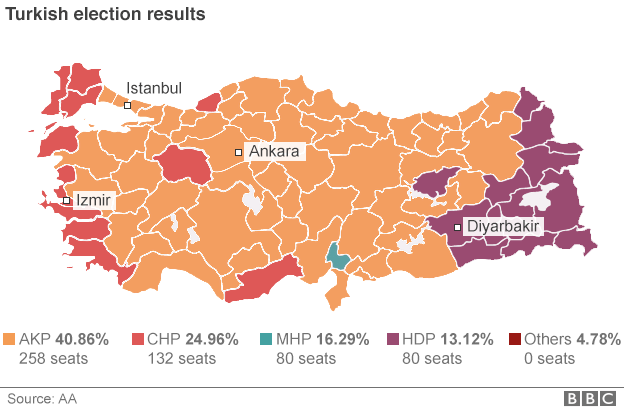
Turkey's system of proportional representation means the AKP's 41% of the vote will not give it a majority in parliament. It is now likely to try to form a coalition, but no party has yet indicated it is willing to join forces with it.
Opposition parties may yet try to form a coalition against the AKP.
But Numan Kurtulmus, one of Turkey's four deputy prime ministers, said there would be no government without representation by the AKP.
Prime Minister Ahmet Davutoglu is meeting AKP cabinet members and officials to assess the election results in Ankara.
After the official final result is declared, he will have 45 days to form a government.
Mr Kurtulmus said another election was possible.

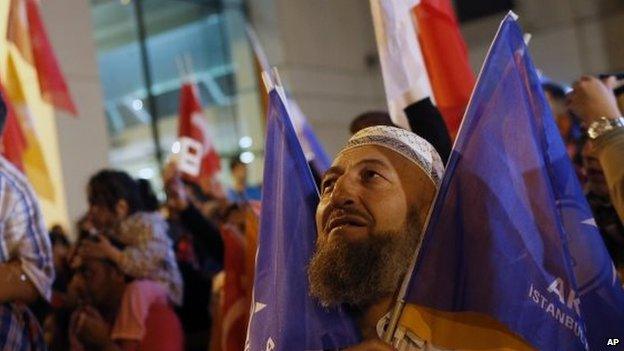
The AKP is expected to secure 41% of the vote - enough for its supporters to celebrate in Istanbul
The BBC's Mark Lowen in Istanbul
This is potentially a new political era in Turkey.
The AKP still won this election, with over 40% of the vote - a share of the vote that parties in any democracy would crave.
It still has a substantial power base, mainly of the more religious, conservative Turks, who feel liberated by the party and the president.
But the AKP's dominance, the one-man political show that has played out in Turkey for 13 years and polarised this nation, has just taken a very big kick.

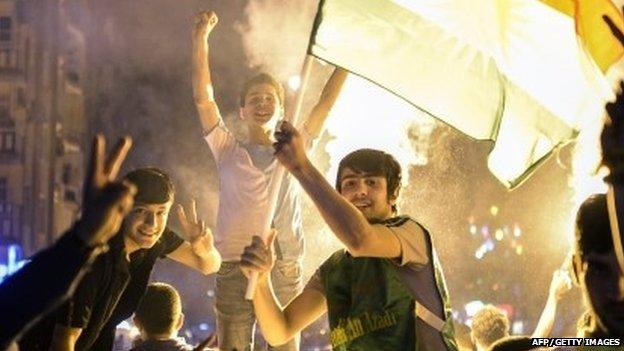
Supporters of the HDP took to the streets in their heartland city of Diyarbakir
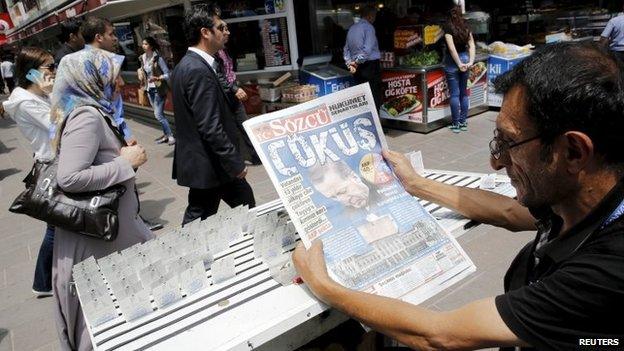
The left-wing Sozcu newspaper's front page headline on Monday read 'The Downfall'
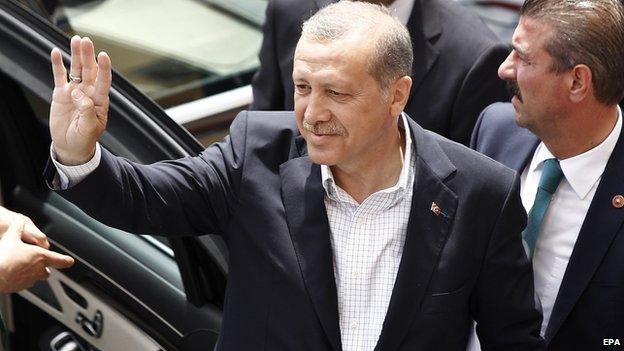
President Erdogan's heavy involvement in the general election campaign proved controversial
The result is a blow to Mr Erdogan's plans to boost his office's powers.
He had been seeking a two-thirds majority to turn Turkey into a presidential republic.
The pro-Kurdish HDP crossed the 10% threshold, securing seats in parliament for the first time.
"The discussion of executive presidency and dictatorship have come to an end in Turkey with these elections," said HDP leader Selahattin Demirtas.

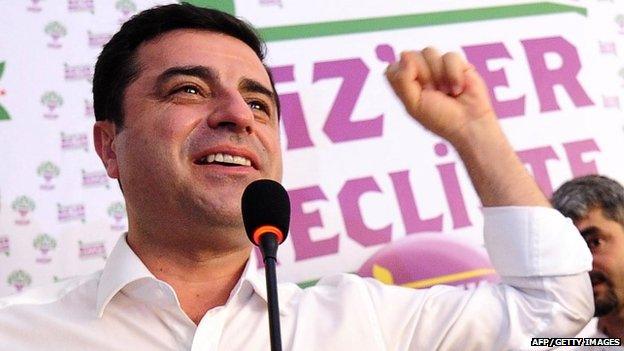
HDP co-leader Selahattin Demirtas has ruled out a coalition with the AKP
Who are the HDP?
The People's Democratic Party was founded as a pro-Kurdish party in 2012
There are 15m Kurds in Turkey - or 20% of the population
The party has since attracted support across the left
It had the only openly gay candidate in Turkey's elections
A higher proportion of women ran for the HDP than any other party

On Monday morning, the Turkish currency fell to near-record lows against the dollar, and shares dropped by more than 8% soon after the Istanbul stock exchange opened.
The central bank acted quickly to prop up the lira by cutting the interest rate on foreign currency deposits.

Are you in Turkey? What's your reaction to the election result? You can share your thoughts by emailing haveyoursay@bbc.co.uk, external.
If you are available to talk to a BBC journalist, please include a telephone number.
Share your pictures with us, email yourpics@bbc.co.uk, external, upload them here, or tweet @BBC_HaveYourSay, external.
You could also send us pictures on WhatsApp. Our number is: +44 7525 900971.
Read our terms and conditions.